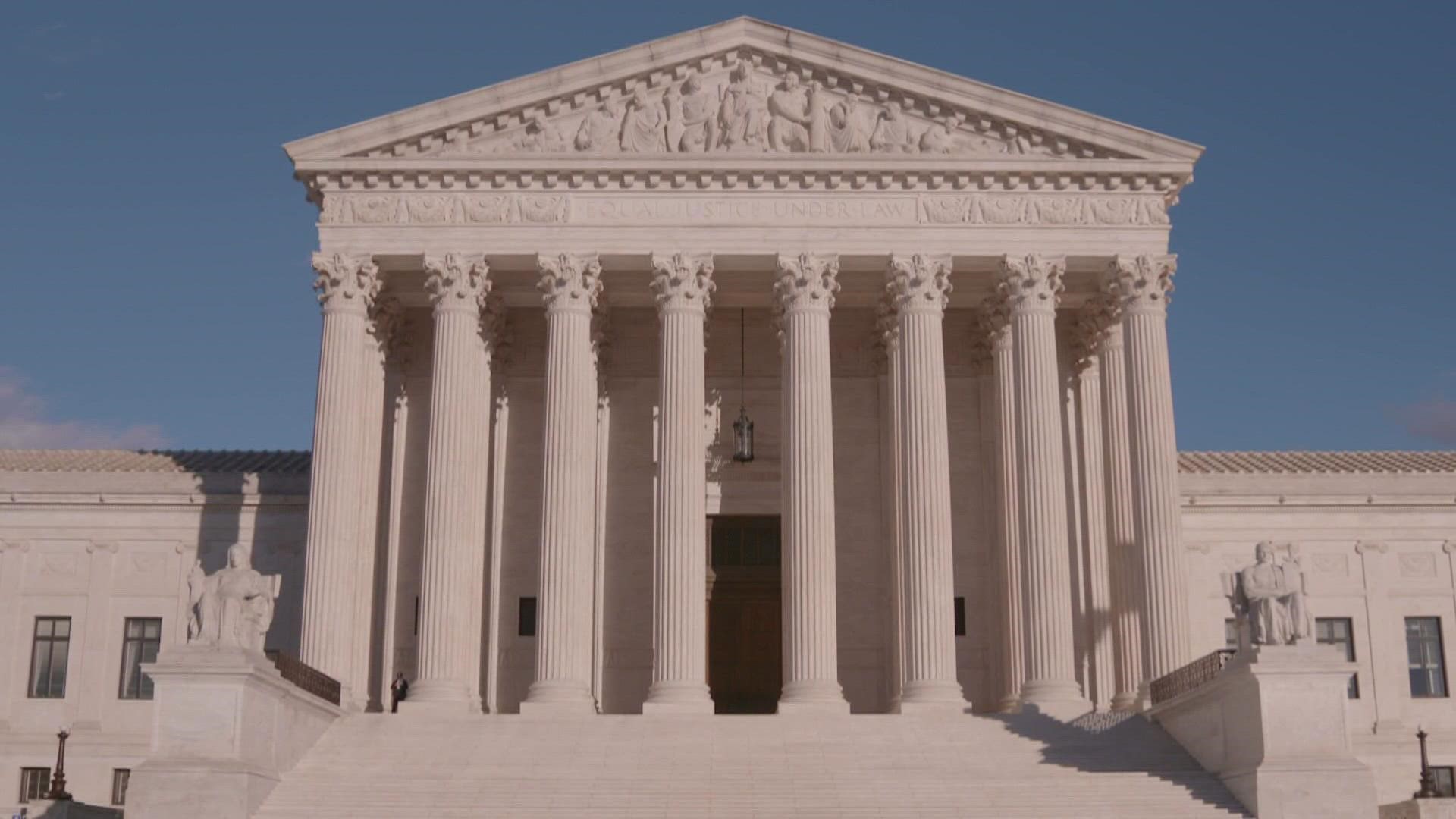WASHINGTON — The U.S. Supreme Court operates on a tight schedule. Cases are limited to one hour each on days when arguments are held.
Justices will hear two cases involving Texas on Monday.
Arguments in the first case, a group of abortion providers suing the state, begin at 9 a.m.
Justices allow each side 30 minutes including questions they have for attorneys presenting the case.
The women’s clinics will argue that the enforcement of Texas’s new abortion law is unconstitutional because it avoids judicial review by leaving enforcement up to private citizens instead of state officials.
The second case is the U.S. Justice Department versus Texas.
The federal government is asking that it be allowed to intervene and block the law from being enforced because it also argues it is unconstitutional because women have a right to an abortion based on the almost 50-year precedent set by Roe v. Wade.
In both cases, Texas will argue the law is written so that since the state isn't enforcing the law, there is really no one to sue.
“Undoubtedly this moment in time for the pro-life movement is historic,” said Kimberlyn Schwartz of Texas Right to Life.
“What the Texas heartbeat act has proven if nothing else over the last two months is the world doesn’t need abortion.”
It’s rare for both sides of the abortion debate to agree, but they do on the topic of the uncertain future of abortion access in America.
“It’s a critical time not just for abortion access, but this is a direct attack on bodily autonomy,” said Kamyon Conner, executive director of the Texas Equal Access Fund.
The TEA Fund helps women in Texas pay for abortions.
“And if you think SB 8 is a law that only affects abortion access, you’re wrong. The civil suit component, if it’s upheld can be used to attack many of our freedoms,” Conner said.
The way the law is enforced will likely be a point of contention among justices, UT law professor Steve Vladeck said.
“This is a case DOJ did not have to bring,” he said. “This is not an area where it’s typically the federal government who is the plaintiff and yet I think this is a case where the principal was too important to fight for, apart from the politics.”

